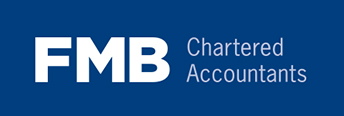Overall non-performing consumer loans at banks and credit unions remain near recent historical lows, despite a slight increase observed in new early arrears cases.
That is according to a new analysis of the consumer credit market by the Central Bank, which also found that consumer debt servicing costs have not increased significantly since the ECB started to raise interest rates in July 2022.
The research also found that the pass through of interest rate increases to new consumer loan rates has been more muted in Ireland than elsewhere in the euro area.
While key ECB interest rates increased by 4.5% over the 18 months to the end of last December, average interest rates on outstanding consumer credit increased by only 23 basis points.
The paper, by Edward Gaffney and Paul Lyons, explains that the non-mortgage consumer credit market represents just over one-tenth of all household credit in Ireland.
It finds that consumer credit has trended upwards since 2016, within a context of overall deleveraging in the household sector.
It also outlines how consumer credit is characterised by smaller amounts, with the mean consumer loan borrower typically having an average outstanding balance of around €7,500 in December of last year.
€10.8 billion was owed on personal loans, €4.8 billion on asset finance and €2.2 billion on cards and overdrafts at the end of December last year.
Consumer credit also has more diverse purposes and a broader range of lenders than the mortgage market, the paper claims.
It finds that while banks continue to have a large share of outstanding consumer credit, credit unions, collectively, are the main lender for personal loan products.
A large, stable share of lending also originates from other non-bank financial intermediaries.
Among personal loans, €6.3 billion of outstanding credit is owed to credit unions, with €3.2 billion owed to main retail banks and €1.3 billion to other providers.
The most common purposes for consumer credit are spending on cars, including through Personal Contract Plans, Hire Purchase agreements and personal loans, as well as for home improvements.
At four major consumer lenders, one-third of consumer credit drawn down between 2020 and 2023 was to finance motor vehicles, and a further one-third was for home improvements.
The research explains that the consumer credit market may be associated with greater risk of default than mortgage markets, because the credit is unsecured and distributed across a wider range of borrowers.
The authors outline how indebtedness among Irish households peaked prior to the financial crisis of 2008 and last year outstanding household credit was approximately one-third below the peak in euro value terms, and even lower in per capita terms.
But consumer credit amounts have been increasing since 2016.
Kevin Johnson, CEO of the Credit Union Development Association (CUDA), said it was no surprise to the credit union movement that they are the main lender for personal loan products.
“Credit union lending rates are particularly competitive as they are not impacted by elevated ECB rates,” he said.
“Credit unions are also very must trusted by consumers – in 2023, they topped the table for the best customer experience (the CX Customer Experience report) in Ireland for nine years running,” he added.
Mr Johnson added that it is interesting the research finds that demand for consumer credit has remained strong, despite the ECB starting to raise interest rates in 2022.
“The report also shows that the pass through of interest rate increases to new consumer loan rates has been more muted in Ireland than elsewhere in the euro area and we believe that the predominance of credit unions in the personal loan market is one of the main reasons for this,” he said.
Article Source – Credit unions main lender for personal loans – research – RTE





